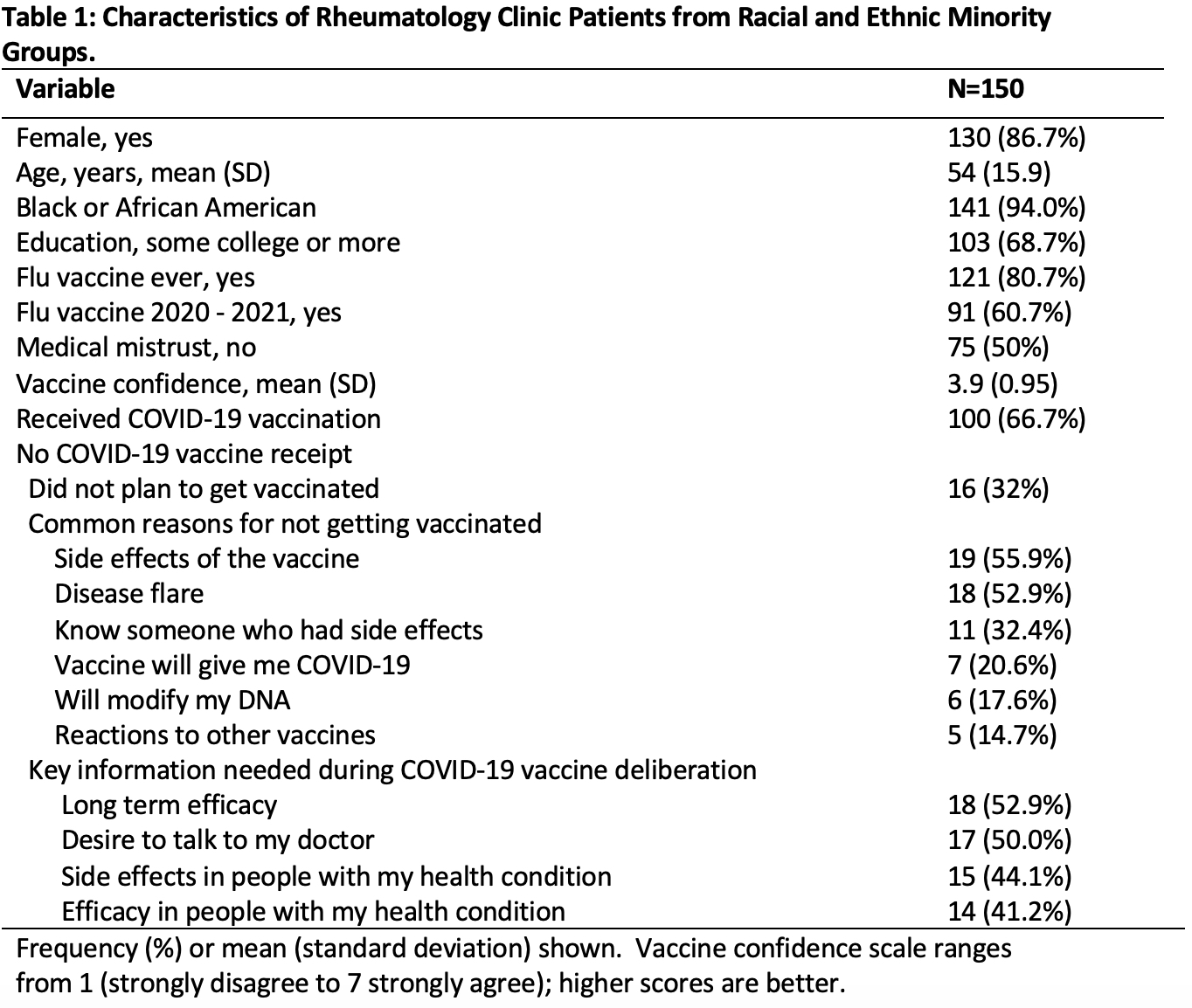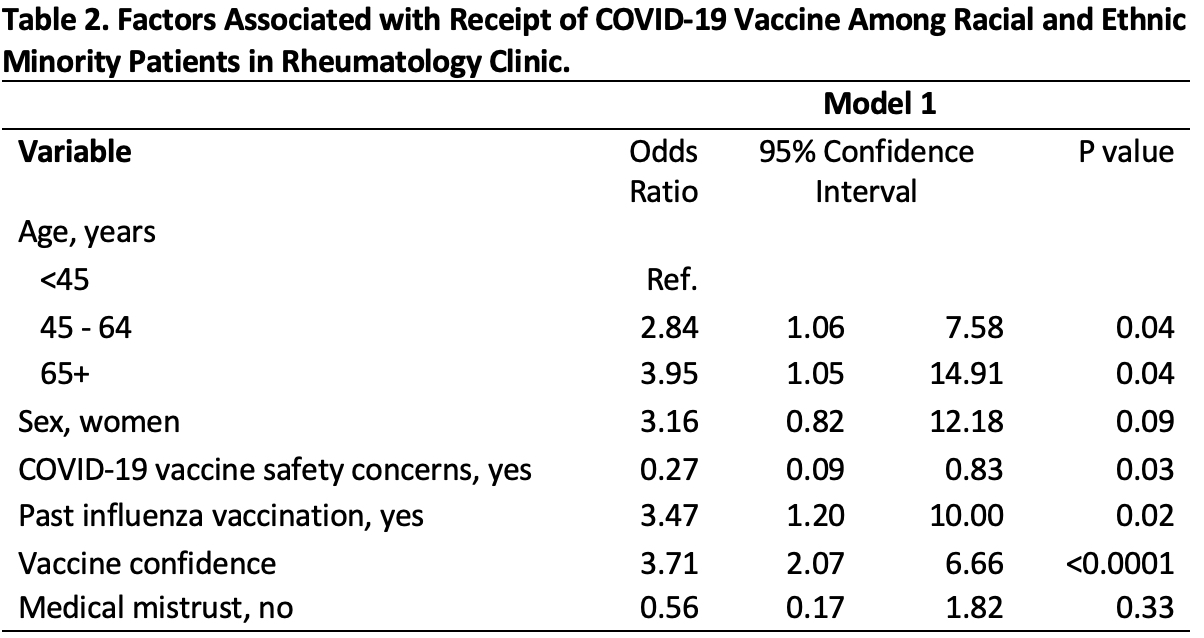Session Information
Session Type: Poster Session B
Session Time: 8:30AM-10:30AM
Background/Purpose: Alabama lags behind many other states in COVID-19 vaccination uptake and racial/ethnic minority groups face COVID-19 vaccine access disparities. Moreover, lack of vaccination access and medical mistrust among Alabama’s large African American population, a vestige of the devastating Tuskegee Syphilis study, further perpetuate health care disparities. We examined concerns and beliefs about COVID-19 vaccination among racial and ethnic minority patients receiving rheumatology care at a large academic medical center in the Deep South and factors associated with COVID-19 vaccine receipt.
Methods: In April 2021, we invited racial and ethnic minority patients to complete a survey on a tablet computer during an in-person visit to the rheumatology clinics at our center. Vaccination confidence was assessed using the confidence scale from the validated 5C psychological antecedents of vaccination. Descriptive statistics summarized attitudes and beliefs about COVID-19 vaccination and multivariable logistic regression determined factors associated with receipt of a COVID-19 vaccine. The following factors were examined: age, sex, education, vaccine confidence, safety concerns, medical mistrust, past flu vaccine receipt.
Results: Of the 156 racial and ethnic minority patients approached between April 19 and May 6, 2021, 150 agreed to complete the survey. Mean (standard deviation) for age was 54 (15.9) years, 86.9% were women, 94% identified themselves as Black or African American, 69% had at least some college, and 22% said they believed they would have gotten better medical care if they belonged to a different race or ethnic group (Table 1). Although 81% of respondents reported prior receipt of flu vaccine, only two thirds reported having had the COVID-19 vaccine. Of those who were not yet vaccinated (N=50), half had been offered the vaccine and a third said they did not plan were to be vaccinated. The most common reasons for not getting vaccinated included concerns about side effects (56%), fear of disease flare (53%), knowing someone who had a bad experience with the vaccine (32%), concern of getting COVID-19 from the vaccine (21%), and concern that the vaccine would “modify my DNA” (18%). Those not yet vaccinated expressed a need to obtain information about the efficacy and safety of this vaccination in people with rheumatic disease. After multivariable adjustment, older age, not having safety concerns about COVID-19 vaccine, past flu vaccine receipt, and higher vaccine confidence were associated with COVID-19 vaccination (Table 2). There was no association between reporting medical mistrust and COVID-19 vaccine receipt.
Conclusion: During the COVID-19 vaccine roll out in Alabama, one in ten racial and ethnic minority patients in a large academic rheumatology clinic said they were unlikely to get vaccinated. Older age, past flu vaccine receipt, higher confidence in and lack of safety concerns about the COVID-19 vaccine were associated with COVID-19 vaccination. Our findings highlight the need for tailored COVID-19 vaccination programs for individuals with rheumatic diseases in these subpopulations susceptible to health disparities to help ensure individual and societal protection against COVID-19.
To cite this abstract in AMA style:
Danila M, Jackson L, Mudano A, Rosas G, Merchant J, Foster J, Saag K. Concerns and Beliefs About COVID-19 Vaccination Among Racial and Ethnic Minority Patients with Rheumatic Disease [abstract]. Arthritis Rheumatol. 2021; 73 (suppl 9). https://acrabstracts.org/abstract/concerns-and-beliefs-about-covid-19-vaccination-among-racial-and-ethnic-minority-patients-with-rheumatic-disease/. Accessed .« Back to ACR Convergence 2021
ACR Meeting Abstracts - https://acrabstracts.org/abstract/concerns-and-beliefs-about-covid-19-vaccination-among-racial-and-ethnic-minority-patients-with-rheumatic-disease/


